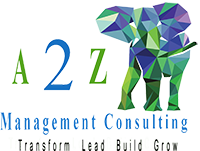That includes understanding the difference between https://www.wedding–dresses.net/2019/02/ supporting and enabling someone. It’s important to acknowledge these feelings without letting them turn into blame or resentment. Create your own toolkit of strategies for ensuring you’re able to remain strong and supportive of your loved one. You may want to involve a professional in this process to maximise its effectiveness. If they’ve undergone a 28-day inpatient treatment, they will likely already have one you can refer to if a relapse occurs.
Staying in treatment is the most important way to help prevent a relapse. Everything from taking your medications to talking to a mental health professional or support group can help you stay focused on your recovery goals. A relapse is what happens when you return to using substances you want to avoid. It can mean a one-time slip-up or a return to regularly using drugs or alcohol. Relapse is a critical concept in the journey of recovery from addiction.
Mindfulness and meditation are powerful tools in relapse prevention, helping individuals stay grounded in the present moment and manage cravings more effectively. Cognitive Behavioral Therapy (CBT) is a cornerstone of relapse prevention because it addresses the negative thought patterns and behaviors that can lead to substance use. By identifying and challenging these thoughts, individuals can develop healthier coping mechanisms. Incorporating insights gained from relapses into a personalized recovery plan is vital. This might involve engaging in therapy focused on cognitive-behavioral strategies, attending support groups, or adopting mindfulness practices to enhance self-awareness. These adjustments can foster resilience and create a more robust framework for ongoing recovery.
The Benefits of Journaling During Mental Health Recovery
Healthy coping mechanisms give people constructive ways to manage stress, cope with difficult emotions, and navigate the challenges of recovery. Instead of turning to substances as a means of escape or relief, individuals learn to channel their energy and emotions into activities that promote their well-being and sobriety. Managing stress is one of the most important relapse-prevention skills a person can have.
Instead, you must use relapse prevention strategies every day to protect your sobriety and work toward lifelong recovery. Drug and alcohol addiction can negatively impact your health, relationships, and mental health. Getting treatment and support https://www.interstellarindex.com/MentalDisorders/encyclopedia-of-mental-disorders to overcome addiction is one of the most important decisions you’ll ever make. Healthy routines are keys to relapse prevention, with pinpointing triggers and creating a support system being equally essential.
- It’s a poignant moment when someone who has worked tirelessly to break free from addiction finds themselves slipping back into old patterns of behavior and substance use.
- Identifying and managing these triggers empowers you to respond effectively, minimizing the risk of relapse.
- It’s a heartbreaking experience that can leave individuals feeling defeated, ashamed, and overwhelmed by the weight of their struggles.
- Remember the embarrassing things you may have done or the people you may have hurt.
Proven Methods on How to Stop Alcohol Addiction
To effectively identify these risks, individuals are encouraged to reflect on their personal history and patterns of use. Using tools like worksheets, they can list potential hazards and early warning signs that might lead to relapse. Regular assessment with clinicians and support networks helps keep the plan current and responsive to changes.
Overcoming the Stigma Associated with Addiction
Furthermore, it will provide an in-depth look at the coping skills and strategies that have proven effective in preventing relapse. These will encompass mindfulness and stress management practices, the importance of building a strong support system, and essential lifestyle changes that contribute to overall well-being. Relapse prevention is a critical component of sustained recovery from substance use disorders. It involves a personalized, comprehensive approach to identifying risks, developing coping strategies, and establishing a support system tailored to individual needs.
Mental Relapse
Meditation is a powerful tool for cultivating inner peace and focus. Techniques such as guided meditation, mindfulness meditation, and deep-breathing exercises can help individuals gain control over their thoughts and emotions. By practicing regular meditation, individuals can reduce stress, improve emotional https://www.mortuarythemovie.com/2020/10/ regulation, and enhance their overall mental well-being. There are different models and techniques to include in your relapse prevention plan.
Physical relapse
It is a complex and multifaceted process that can undermine the progress made during rehabilitation. At All American Detox, a comprehensive understanding of relapse and the implementation of effective prevention techniques are paramount to fostering long-term sobriety. This article delves into the essential coping skills and strategies that can aid individuals in maintaining their recovery journey.
Practice Self-Acceptance through Mindfulness
Supporting someone going through relapse is easier when you understand triggers and have some tools and resources available to you. The mental stage of a relapse happens when your thoughts start drifting to resuming substance use. Almost everyone living with substance use disorder experiences a return to use at some point.
Nestled in Los Angeles, California, Westwind Recovery® extends a helping hand with our mental health and addiction treatment services tailored to guide individuals toward sustained healing. Remember, every small step forward is significant in your healing journey. So, be patient and take the time to strengthen your support network. By doing so, you greatly increase your chances of long-term success in maintaining a clean and healthy lifestyle. Relapse isn’t just a physical regression; it’s a multifaceted process that involves emotional turmoil, mental conflict, and eventually succumbing to the allure of substances once again. It’s a heartbreaking experience that can leave individuals feeling defeated, ashamed, and overwhelmed by the weight of their struggles.
- Pathways involved in how a person feels pleasure and processes rewards, memory, and decision-making can be altered through substance use.
- People get fired, hearts get broken, and sometimes people leave us forever.
- AA offers several well-known sayings and principles that are often used as tools in moments when someone feels they may relapse.
- Reflecting on the circumstances leading to relapse and seeking support can help in developing strategies to prevent future setbacks.
A relapse can be disheartening and frustrating, but it doesn’t have to be the end of the road. When it comes to addiction, it’s important to understand that it is not simply a matter of willpower or self-control. Addiction is a disease that affects the brain, altering its chemistry and functioning. This means that even after a period of sobriety, the brain may still be wired to crave the substance that was once abused.
Self-awareness allows people to identify patterns of thinking or behavior that may lead to relapse and to implement coping strategies or seek support accordingly. Moreover, self-awareness fosters a sense of accountability and ownership over one’s actions, empowering individuals to make informed choices that align with their recovery goals. The significance of a robust relapse prevention plan cannot be emphasized enough. While preventing relapse may seem like a secondary objective, it is a vital resource throughout the recovery journey. From yoga to anger management, life-skills training, medication-assisted treatment, cognitive behavioral therapy, and more, we stop at nothing to find what works for you. Contact us today to schedule a consultation and start your recovery journey now.

